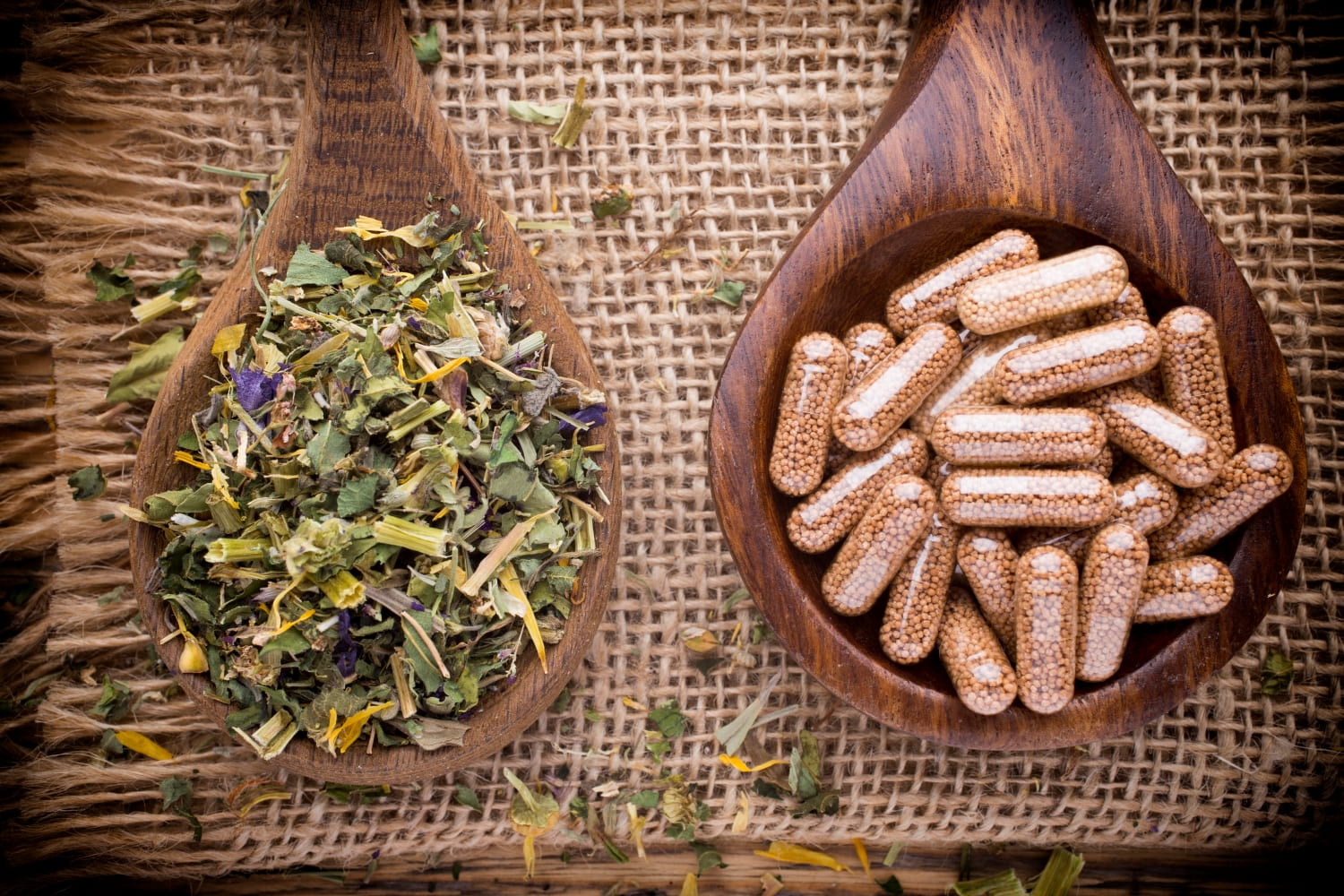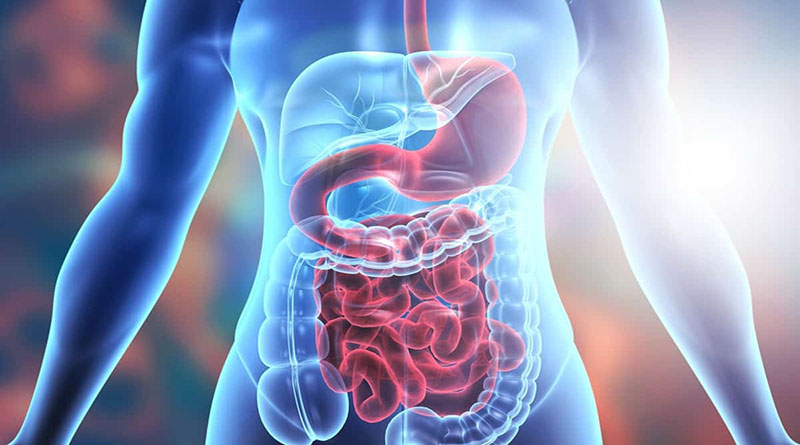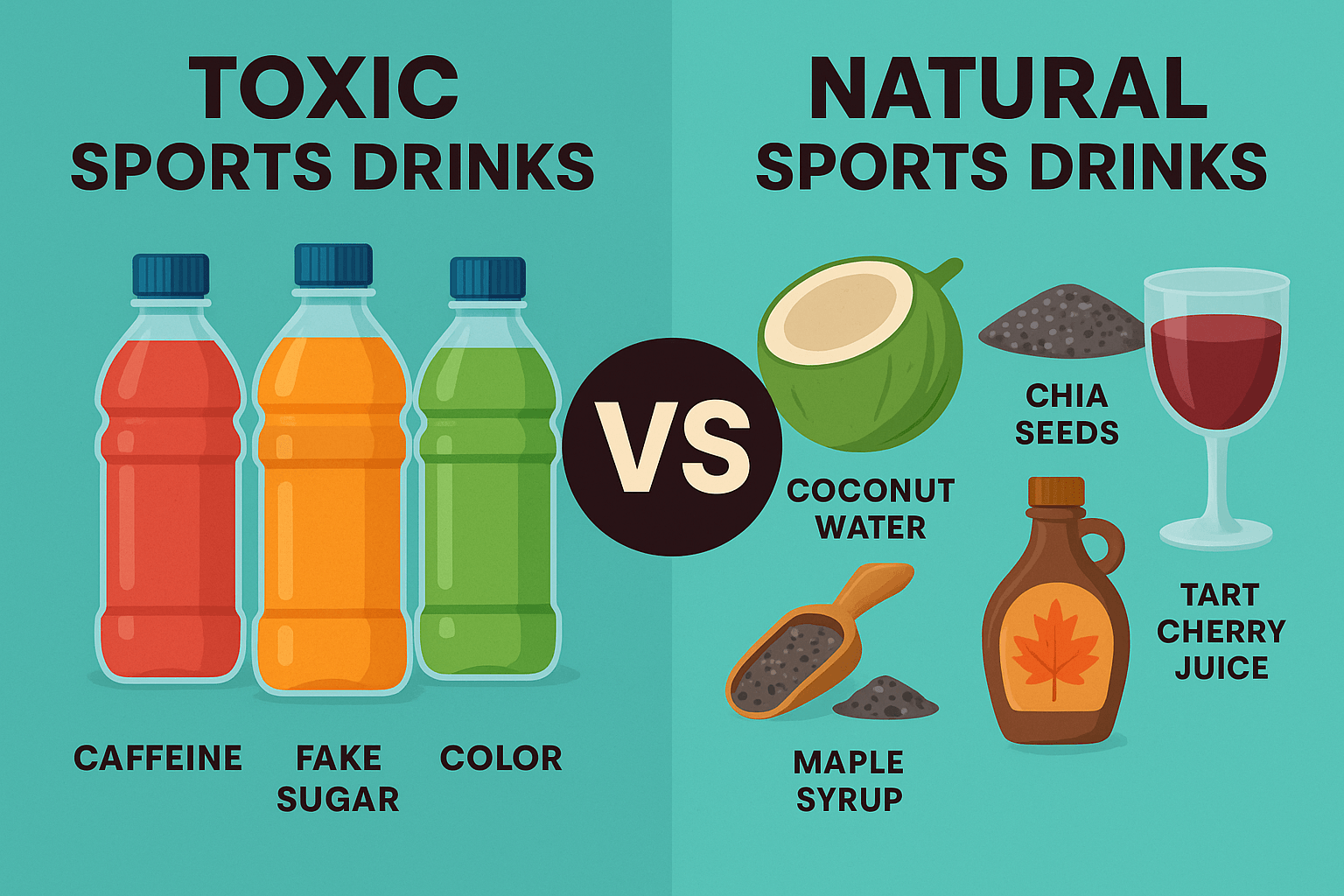Exercise Daily – Have you ever felt that gnawing discomfort in your tummy after a large meal or the frustrating inconvenience of constipation and bloating? If so, you’re not alone. Digestive issues are incredibly common, affecting millions of people worldwide. While medications can offer temporary relief, many people use natural remedies for a gentler, long-term solution.
Feeling bloated, gassy, or experiencing stomach pain? You’re not alone. Digestive issues are incredibly common, affecting millions of people worldwide. While medications can offer temporary relief, there’s a growing interest in natural remedies for digestive problems.
But what exactly are natural digestive remedies? And why are they gaining popularity?
What Are Natural Digestive Remedies?
Natural digestive remedies are substances derived from plants, herbs, and other natural sources that relieve digestive problems. They work by supporting healthy digestive function in a variety of ways, including:
- Aiding digestion: Certain herbs and spices stimulate the production of digestive enzymes, helping break down food more efficiently.
- Soothing inflammation: Natural ingredients like ginger and chamomile are anti-inflammatory, reducing irritation and pain in the digestive tract.
- Promoting gut health: Probiotics and fermented foods replenish the gut with beneficial bacteria essential for optimal digestion and immune function.
Natural digestive remedies are plant-based substances, dietary changes, or lifestyle modifications used to treat or prevent digestive problems. These remedies utilize the healing properties of nature to address symptoms like stomach pain, indigestion, constipation, diarrhea, bloating, gas, and acid reflux.
Why Choose Natural Remedies?
There are many compelling reasons to choose natural remedies for your digestive woes:
- Fewer side effects: Unlike medications, which often have many potential side effects, natural remedies are generally well-tolerated with minimal adverse reactions.
- Holistic approach: Natural remedies address the root cause of digestive issues, promoting overall gut health and well-being.
- Accessibility: Many natural remedies are readily available and affordable, allowing you to take control of your digestive health without relying on expensive prescriptions.
- Dietary restrictions: Natural remedies are often suitable for individuals with dietary restrictions, allergies, and sensitivities to certain medications.

Common Digestive Issues
Before diving into the world of natural remedies, let’s take a closer look at some of the most common digestive issues people face:
Stomach Pain:
- Peppermint: This herb possesses anti-inflammatory properties that can soothe stomach pain. Enjoy a cup of peppermint tea or suck on peppermint candies.
- Ginger: Ginger is a natural anti-emetic, helping to settle the stomach and relieve nausea. Try ginger tea, chew on ginger candies, or add grated ginger to your meals.
Indigestion:
- Chamomile Tea: This calming tea promotes relaxation and digestion. Enjoy a warm cup after meals to soothe discomfort.
- Fennel Seeds: These seeds have carminative properties, reducing gas and bloating. Chew on fennel seeds after meals or add them to your cooking.
Constipation:
- Aloe Vera: This natural laxative can help soften stool and promote bowel movement. Drink store-bought aloe vera juice or consume the gel directly from the plant (after proper preparation).
- Yogurt: Probiotics in yogurt aid digestion and promote gut health, easing constipation. Choose yogurt with live and active cultures.
Diarrhea:
- Psyllium Husk: This fiber supplement absorbs water and bulks up stool, alleviating diarrhea. Mix psyllium husk with water and consume before meals.
- Warm Compress: Applying a warm compress to your abdomen can relax muscles and ease discomfort.
Bloating and Gas:
- Stress Management Techniques: Stress can exacerbate digestive issues. Practice yoga, meditation, or deep breathing exercises to manage stress and improve gut health.
- Probiotic Supplements: Probiotics promote the growth of beneficial bacteria in your gut, reducing bloating and gas. Consult your doctor before starting any supplements.
Acid Reflux:
- Apple Cider Vinegar: Dilute apple cider vinegar in water and drink before meals to neutralize stomach acid and relieve heartburn.
- Diet and Nutrition: Avoid triggers that worsen acid reflux, such as spicy, greasy, and acidic foods.

Natural Remedies for Digestive Issues
Now, let’s explore a range of natural remedies to address these common digestive concerns:
Peppermint
This herb boasts antispasmodic properties, relaxing the digestive muscles and relieving cramps, bloating, and gas.
- Peppermint tea: Steep a cup of peppermint tea after meals to soothe your stomach and ease indigestion.
- Peppermint oil: Dilute peppermint oil with a carrier oil and apply it topically to the abdomen to relieve bloating and cramps.
Ginger
Renowned for its anti-inflammatory and digestive-stimulating effects, ginger is a potent remedy for nausea, indigestion, and stomach pain.
- Ginger tea: Brew ginger by adding grated ginger to boiling water and simmering for 10 minutes.
- Ginger chews or capsules: Ginger chews or capsules offer a convenient way to consume ginger throughout the day.
Chamomile tea
This calming herb is anti-inflammatory and soothing, promoting relaxation and easing digestive discomfort.
Fennel seeds
Chewing on fennel seeds after meals helps improve digestion by stimulating the production of digestive enzymes and reducing gas.
Aloe vera
This natural gel offers soothing relief from heartburn and acid reflux. Consume small amounts of aloe vera juice or apply it topically to the abdomen.
Yogurt
A rich source of probiotics, yogurt helps restore gut flora balance, promoting healthy digestion and reducing constipation and bloating.
Probiotic supplements
Probiotics are beneficial bacteria that are crucial to gut health. Taking probiotic supplements can help improve digestion, relieve constipation, and boost immunity.
Apple cider vinegar
This fermented vinegar aids digestion by promoting the production of stomach acid and reducing bloating. Mix a tablespoon of apple cider vinegar with a glass of water and drink before meals.
Psyllium husk
This soluble fiber absorbs water and forms a gel in the gut, promoting regular bowel movements and relieving constipation.
Warm compress
A warm compress to the abdomen relaxes muscles and soothes cramps and pain.
Stress-management techniques
Stress is a major contributor to digestive problems. Yoga, meditation, deep breathing, or other relaxing activities can significantly improve gut health.

Lifestyle Changes for Digestive Health
Beyond natural remedies, incorporating these lifestyle changes can further enhance your digestive health:
- Diet and nutrition (continued): protein while limiting processed foods, sugary drinks, and excessive saturated fats.
- Hydration: Drink plenty of water daily to stay hydrated and promote regular bowel movements.
- Exercise: Regular physical activity stimulates digestion and improves overall health.
- Sleep: Aim for 7-8 hours of quality sleep each night to promote gut health and reduce stress.
- Stress management: Practice stress-reduction techniques such as yoga, meditation, or deep breathing to manage stress and its negative impact on digestion.
When to See a Doctor
While natural remedies can be incredibly effective for many digestive issues, it’s important to know when to seek medical attention. Consult your doctor if you experience any of the following:
- Severe or persistent pain
- Unexplained changes in bowel habits
- Blood in the stool
- Unintentional weight loss
- Difficulty swallowing
- Vomiting that lasts more than 24 hours
Conclusion
Your digestive system plays a crucial role in your overall health and well-being. By incorporating these natural remedies and lifestyle changes into your routine, you can promote healthy digestion, prevent discomfort, and experience renewed vitality. Remember, experimentation is key! Listen to your body and find what works best for you.
FAQs:
1. Can I combine natural remedies with medication?
Always consult your doctor before combining natural remedies with medication. Certain medications may interact with natural ingredients, potentially causing unintended side effects.
2. How long do natural remedies take to work?
The effectiveness of natural remedies varies depending on the individual and the severity of the digestive issue. Some remedies offer immediate relief, while others require consistent use for several weeks to see noticeable results.
3. Are there any side effects of using natural remedies?
While generally safe, some natural remedies may cause mild side effects in certain individuals. It’s important to research potential side effects and start with small doses before increasing intake.
4. What are the best natural remedies for children?
Many natural remedies are safe for children, but choosing age-appropriate options and consulting a pediatrician before use is crucial.
5. Where can I find more information about natural remedies?
Numerous reputable sources online and in libraries provide detailed information about natural remedies for digestive issues. You can also consult a naturopathic doctor or herbalist for personalized recommendations.
Remember, a healthy gut is essential for a happy and healthy life. By incorporating these natural remedies and lifestyle changes, you can achieve optimal digestive function and experience a newfound sense of well-being.





